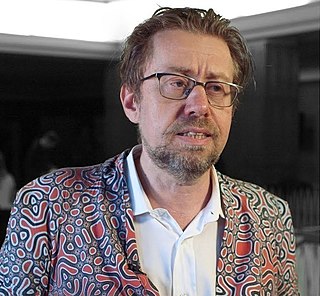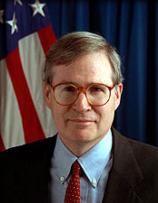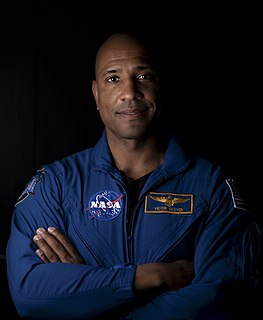A Quote by Daniel Pinchbeck
If consciousness is the ground of being rather than an epiphenomenon of physical processes, we may find that a basic question asked by modern astronomy and space science- 'Is there life out there?'- should be rephrased. Organic life, as well as intelligence, may already be a property enmeshed in the fabric of the cosmos, brought to fruition through the spiraling dynamics of the solar system and the galaxy, built into the structure of the universe itself.
Quote Topics
Asked
Astronomy
Basic
Being
Brought
Built
Consciousness
Cosmos
Dynamics
Fabric
Find
Fruition
Galaxy
Ground
Intelligence
Itself
Life
May
Modern
Organic
Organic Life
Out
Physical
Processes
Property
Question
Rather
Science
Should
Solar
Solar System
Space
Space Science
Structure
System
Than
Through
Universe
Well
Related Quotes
While the Copernican principle comes with no guarantees that it will forever guide us to cosmic truths, it's worked quite well so far: not only is Earth not in the center of the solar system, but the solar system is not in the center of the Milky Way galaxy, the Milky Way galaxy is not in the center of the universe, and it may come to pass that our universe is just one of many that comprise a multiverse. And in case you're one of those people who thinks that the edge may be a special place, we are not at the edge of anything either.
Many expressions that are in common usage, and sometimes the structure of language itself, reveal the fact that people don't know who they are. You say: "He lost his life" or "my life," as if life were something that you can possess or lose. The truth is: you don't have a life, you are life. The One Life, the one consciousness that pervades the entire universe and takes temporary form to experience itself as a stone or blade of grass, as an animal, a person, a star or a galaxy. Can you sense deep within that you already know that? Can you sense that you already are That?
The seemingly insuperable difficulties of deep-space travel suggest an intention to keep us fixed at home in our own solar system, and the physical nature of our part of the Universe, as well as the basic rules of physics and chemistry, have a warning look about them, like barriers designed to isolate intelligent life. This means that for us, unlike the situation for humble microorganisms, deep-space travel is probably a stark impossibility.
Astrobiology is the science of life in the universe. It's an attempt to scientifically deal with the question of whether or not we're alone in the universe, looking at the past of life, the present of life, and the future of life. It's an interdisciplinary study incorporating astronomy, biology, and the Earth sciences.
What happens to the mind of a person, and the moral fabric of a nation, that accepts the aborting of the life of a baby without a pang of conscience? What kind of a person and what kind of a society will we have twenty years hence if life can be taken so casually? It is that question, the question of our attitude, our value system, and our mind-set with regard to the nature and worth of life itself that is the central question confronting mankind. Failure to answer that question affirmatively may leave us with a hell right here on earth.
As we begin the 21st century, the Hubble space telescope is providing us with information about as yet uncharted regions of the universe and the promise that we may learn something about the origin of the cosmos. This same spirit of adventure is also being directed to the most complex structure that exists in the universe - the human brain.
Initiate giving. Don't wait for someone to ask. See what happens - especially to you. You may find that you gain a greater clarity about yourself and about your relationships, as well as more energy rather than less. You may find that, rather than exhausting yourself or your resources, you will replenish them. Such is the power of mindful, selfless generosity. At the deepest level, there is no giver, no gift, and no recipient . . . only the universe rearranging itself.
The catastrophe story, whoever may tell it, represents a constructive and positive act by the imagination rather than a negative one, an attempt to confront the terrifying void of a patently meaningless universe by challenging it at its own game. [. . .] Each one of these fantasies represents an arraignment of the finite, an attempt to dismantle the formal structure of time and space which the universe wraps around us at the moment we first achieve consciousness.
No one from the intelligence community, anyplace else ever came in and said, ‘What if Saddam is doing all this deception because he actually got rid of the WMD and he doesn't want the Iranians to know?' Now somebody should have asked that question. I should have asked that question. Nobody did. Turns out that was the most important question in terms of the intelligence failure that never got asked.
I now believe that the universe was brought into existence by an infinite Intelligence. I believe that this universe's intricate laws manifest what scientists have called the Mind of God. I believe that life and reproduction originate in a divine Source. Why do I believe this, given that I expounded and defended atheism for more than a half century? The short answer is this: this is the world picture, as I see it, that has emerged from modern science.
But, as Douglas E Harding has pointed out, we tend to think of this planet as a life-infested rock, which is as absurd as thinking of the human body as a cell infested skeleton. Surely all forms of life, including man, must be understood as "symptoms" of the earth, the solar system, and the galaxy in which case we cannot escape the conclusion that the galaxy is intelligent.
If we make this readjustment to view Homo sapiens as an ultimate in oddball rarity, and life at bacterial grade as the common expression of a universal phenomenon, then we could finally ask the truly fundamental question raised by the prospect of Martian fossils. If life originates as a general property of the material universe under certain conditions (probably often realized), then how much can the basic structure and constitution of life vary from place to independent place?


































